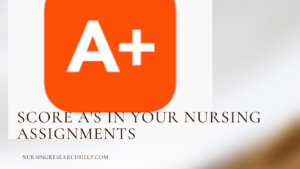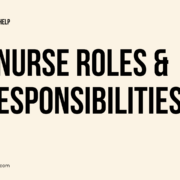Mastering Nursing Pharmacology: A Comprehensive Guide
Mastering Nursing Pharmacology: A Comprehensive Guide
Nursing pharmacology is a multifaceted field that encompasses the study of drugs and their effects on the human body. It plays a critical role in the healthcare industry by ensuring safe and effective medication administration, promoting optimal patient outcomes, and minimizing potential risks. As a nurse, having a comprehensive understanding of pharmacology is essential for providing high-quality care to patients across various settings, including hospitals, clinics, and long-term care facilities.
The Importance of Nursing Pharmacology
Nursing pharmacology holds immense importance in the field of healthcare. Nurses are often responsible for administering medications, monitoring patient responses, and educating patients and their families about proper drug usage. A sound knowledge of pharmacology equips nurses with the necessary skills to assess patients’ medication needs, identify potential drug interactions, and manage adverse reactions. By understanding the mechanisms of action, therapeutic indications, and potential side effects of different medications, nurses can make informed clinical decisions and advocate for patient-centered care.

Moreover, nursing pharmacology plays a significant role in medication safety. Medication errors can have severe consequences for patients, and nurses play a pivotal role in preventing and mitigating such errors. By applying their pharmacological knowledge, nurses can accurately calculate medication dosages, ensure appropriate administration routes, and monitor patients for adverse reactions or drug interactions. They also collaborate with other healthcare professionals to conduct medication reconciliation, thereby reducing the risk of errors during transitions of care.
Basic Nursing Pharmacology Concepts
To effectively navigate the world of nursing pharmacology, nurses must grasp key concepts. Drug classifications form the foundation of pharmacology, as they help categorize medications based on their therapeutic properties, indications, and potential side effects. Understanding the major drug classes encountered in nursing practice, such as analgesics, antibiotics, anticoagulants, and diuretics, allows nurses to provide comprehensive care to patients.
Pharmacokinetics focuses on how drugs are absorbed, distributed, metabolized, and eliminated by the body. Concepts such as bioavailability, half-life, and clearance help nurses understand how different factors, such as age, renal function, and concurrent medications, can influence drug pharmacokinetics. This knowledge aids in dosage adjustments and ensures optimal drug efficacy and safety.
Pharmacodynamics explores how drugs interact with specific receptors or enzymes in the body to produce therapeutic effects. Nurses must understand the concepts of agonists and antagonists, dose-response relationships, and drug tolerance to comprehend how medications act on the body. This knowledge enables nurses to assess patient responses to medications, identify therapeutic successes or failures, and intervene accordingly.
Medication Safety and Administration
Ensuring medication safety is paramount in nursing practice. Nurses must adhere to established protocols and best practices to minimize the risk of medication errors. The “Five Rights” principle, which includes the right patient, right drug, right dose, right route, and right time, serves as a framework for safe medication administration. By verifying these rights, nurses can significantly reduce the potential for errors.
Accurate drug calculations are essential for safe medication administration. Nurses must be proficient in various calculations, such as determining dosage based on patient weight, calculating intravenous infusion rates, and adjusting doses for pediatric patients. Employing standardized calculation methods and employing technology aids, such as calculators or computerized systems, can enhance accuracy and efficiency in drug calculations.
Understanding the different routes of medication administration is crucial for nurses. Each route has its unique advantages and considerations. For example, oral medications offer convenience but may have slower absorption, while intravenous medications provide immediate effects but require vigilant monitoring. Nurses must be familiar with the characteristics and nursing considerations associated with different administration routes to ensure safe and effective drug delivery.
Medication reconciliation, the process of comparing a patient’s current medications with prescribed medications during care transitions, plays a vital role in preventing medication errors. Nurses collaborate with patients, families, and other healthcare providers to compile accurate medication lists and resolve discrepancies. By conducting thorough medication reconciliations, nurses promote patient safety and continuity of care.

Special Considerations
Nursing pharmacology extends beyond general principles and encompasses special considerations for specific patient populations.
Pediatric and geriatric pharmacology requires unique attention. Pediatric patients have distinct physiological and developmental differences that influence medication dosages, formulations, and safety considerations. Nurses must calculate and administer pediatric dosages accurately, taking into account factors such as weight, body surface area, and developmental stages. Geriatric patients, on the other hand, often have multiple comorbidities, altered drug metabolism, and increased susceptibility to adverse drug reactions. Nurses should be cautious when prescribing and administering medications to older adults, considering age-related changes and potential drug interactions.
Pregnancy and lactation pose specific challenges in medication administration. Certain drugs can pose risks to the developing fetus or breastfeeding infants. Nurses must be knowledgeable about the safety profiles of medications during pregnancy and lactation, as well as alternative treatment options. Collaborating with healthcare providers, such as obstetricians or neonatologists, ensures optimal medication choices that balance the needs of the mother and potential risks to the unborn or breastfeeding child.
Cultural competence is essential when administering medications. Different cultural backgrounds and beliefs may influence patients’ attitudes toward medications, adherence to treatment plans, and responses to therapy. Nurses should engage in culturally sensitive care, actively listening to patients, respecting their cultural practices, and tailoring medication education to individual needs. By embracing cultural diversity, nurses foster trust, improve patient outcomes, and promote effective therapeutic relationships.
Resources and Professional Development
To enhance their knowledge and stay updated with the ever-evolving field of nursing pharmacology, nurses can explore various resources and engage in professional development opportunities.
Reliable drug references serve as valuable sources of information. Pharmacology textbooks, online databases, and drug information websites provide comprehensive drug profiles, including indications, dosages, adverse effects, and nursing considerations. Nurses should utilize these references to access accurate and up-to-date drug information.
Continuing education plays a crucial role in maintaining competency in nursing pharmacology. Nurses can participate in continuing education courses, workshops, and conferences that focus on pharmacological advancements, evidence-based practices, and emerging trends in medication management. These educational opportunities enable nurses to expand their knowledge, develop new skills, and network with experts in the field.
Joining nursing associations and specialty organizations related to pharmacology offers additional benefits. These professional communities provide access to resources, networking opportunities, and platforms for sharing experiences and best practices. Membership in such organizations helps nurses stay connected to the latest developments in pharmacology, collaborate with peers, and contribute to the advancement of nursing practice.
Conclusion
Mastering nursing pharmacology is essential for providing safe and effective patient care. Nurses who possess a strong foundation in pharmacology can navigate medication administration, mitigate medication errors, and advocate for optimal patient outcomes. By understanding basic pharmacological concepts, emphasizing medication safety and administration protocols, and considering special patient populations, nurses can excel in pharmacological practice.
Continuous learning, staying updated with reliable drug references, and engaging in professional development opportunities ensure that nurses remain competent in this critical area of healthcare. With their pharmacological knowledge and skills, nurses can confidently administer medications, educate patients, and contribute to improving the overall quality of care.

Nursing Assignment Help
At our company Nursing Research Help, we understand the challenges that nursing students face when it comes to mastering nursing pharmacology and completing assignments in this complex field. That’s why we offer top-notch assignment help services specifically tailored to nursing students. Our team of experienced nursing professionals and subject matter experts is well-versed in nursing pharmacology and can provide you with comprehensive assistance in completing your assignments.
Whether you need help with drug classifications, pharmacokinetics, medication safety, or any other aspect of nursing pharmacology, and nursing proposals, we’ve got you covered. Our services are designed to ensure that you receive well-researched, accurate, and timely assignments that meet the highest academic standards. By availing our assignment help services, you can alleviate the stress of academic workload, enhance your understanding of nursing pharmacology concepts, and ultimately achieve academic success.
Trust us to be your reliable partner in navigating the intricacies of nursing pharmacology assignments, allowing you to focus on your overall learning and professional growth. Contact us today to benefit from our exceptional assignment help services and take a step towards excelling in nursing pharmacology.












